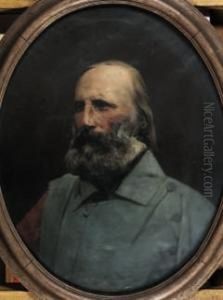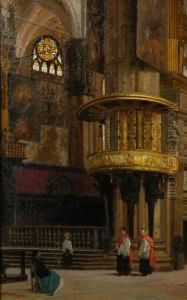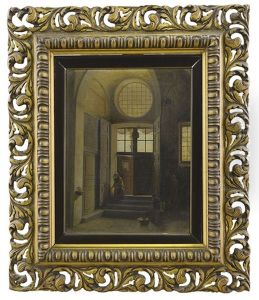Eugenio Perego Paintings
Eugenio Perego was an Italian filmmaker and screenwriter born in 1882 in Milan, Italy. His career spanned the silent and early sound film eras, making him a significant figure in the development of Italian cinema. Despite the lack of widespread recognition today compared to some of his contemporaries, Perego was a pivotal figure in the Italian film industry during his time, contributing to both the artistic and technical evolution of film.
Perego's early life is somewhat obscure, but it is known that he ventured into the film industry during the 1910s, a period when Italian cinema was burgeoning and gaining international acclaim. Italy was then known for its epic historical and classical dramas, and Perego, with his keen eye for detail and narrative, quickly made a name for himself. He was not only a director but also took on roles as a screenwriter, showcasing his versatility and creative prowess.
Throughout his career, Eugenio Perego worked with several leading Italian production companies, including the famous Cines studio, contributing to the Italian cinema's golden era before the First World War. His films often explored themes of love, betrayal, and adventure, resonating with audiences of the time and helping to further the reach of Italian filmmaking.
One of Perego's notable contributions to cinema was his ability to transition from the silent film era to sound films. This period was challenging for many filmmakers, as it required adapting to new technologies and storytelling techniques. Perego's ability to evolve and embrace sound technology demonstrated his commitment to the art form and his innovative spirit.
Despite his contributions, Eugenio Perego's works have not been as extensively preserved or studied as those of some of his peers. The ephemeral nature of early cinema, coupled with the destruction and loss of many films from this period, means that much of Perego's oeuvre remains unseen by modern audiences. However, his impact on the Italian film industry and his role in its formative years are undeniable.
Eugenio Perego passed away in 1946, leaving behind a legacy that, while not as widely recognized as some of his contemporaries, is significant for its contribution to the early development of Italian cinema. Today, he is remembered by film historians and enthusiasts as a pioneer who helped shape the narrative and aesthetic of Italian filmmaking during a formative period in its history.






